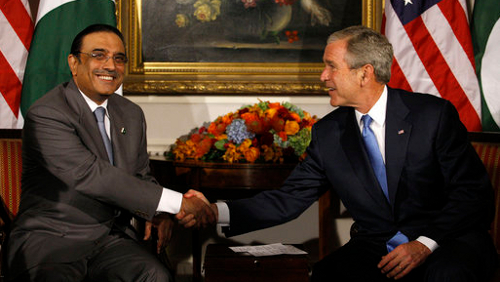Thirdly, the card of religion was overplayed. The premise that Islam would serve as a unifying and binding force in a society that was historically and deeply divided along ethnic tribal, cultural, linguistic and sectarian lines did not work. In the modern socio-political environment, economic and political considerations, not religion, become overriding concerns, particularly when survival is at stake. East Pakistan’s struggle for independence was one example.
The Subcontinent was home to Muslims of all colors and creeds who either converged from other regions or locally converted, all carrying their own baggage. Except for a limited degree of interracial, intercultural and inter-sectarian integration among Muslims, syncretism remained, suppressed for fear of a Hindu onslaught, and was swept under the carpet during the freedom struggle. Once the Hindu threat disappeared after partition, the differences emerged and intensified.
Poverty, illiteracy, and ignorance enabled the rise of the semi-literate and illiterate mullah whose orthodox interpretation of religion promoted intolerance, bigotry and extremism. And when political and economic interests clashed on the issue of control of key national institutions and financial resources by one province, the ethnic blame game marred inter-provincial relationships; clan identity became the key to political affiliations and regional nationalists pitched the provinces against one another. Religion-based integration receded in the background while parochial mindset took control.
Fourthly, Pakistan suffers from the curse of mass obsession with personality cults that inhibits sound political judgment by the voters. Pakistanis keep falling in love with charismatic politicians and keep returning them and their dynasties to power, irrespective of their credentials. And when heirs inexperienced in statecraft leapfrog into power they generate chaos, corruption and inefficiency, which stymie political institutions. President Zardari is one such heir.
With these deep fault lines crisscrossing the socio-political landscape and in the absence of any conscious effort at erasing them, the society began to pull apart rather than come together. Collectively, therefore, people have failed to think or function as a nation, even in 62 years.
The present system of governance is heavily flawed. It allows unbridled misuse of the state machinery by politicians and vested interests driven by greed for power and wealth, which has made a travesty of democracy. Even the best of democracies suffer from some form of inefficiency, but when an environment is marked by mass ignorance and illiteracy; political incompetence; absence of effective checks, balances and accountability; a corrupt and inefficient judiciary; and an indifferent civil society, democracy becomes a tool in hands of the unscrupulous. In Pakistan this opened doors for military intervention.
Pakistan has reached a stage where it needs a revolutionary approach to resolve its problems of governance. Unorthodox and creative solutions that suit the genius and aspirations of the people and that can root out inefficiency and corruption are urgently needed. Time is of the essence.
Pakistan cannot survive on life support for long. If this is not done now, either Pakistan will disintegrate or a bloody revolution will engulf it. If the people cannot keep their body and soul together, they have nothing else to lose except their patience. Realization about the criticality of reform in the way this country is governed is growing, but people are unsure of how this could be addressed.
Although a matter of debate, one option is to install a government of civilian technocrats with the backing of the military for a defined period and a pre-defined purpose, during which time the military can lend its organizational support. Some major tasks for this interim government should be: determine the form of government most suited to Pakistan’s situation (the intelligentsia seems to believe that a combination of presidential and parliamentary form would be a better choice); enforce the rule of law; clean up the judiciary; disqualify politicians found guilty of misuse of power; democratize political parties; allow only those which can prove legitimate source of funding; outlaw parties and outfits that preach ethnic and sectarian violence and religious extremism; break up the current four provinces into several smaller provinces, preferably by grouping the current administrative divisions together; devolve power to these provinces keeping only essential subjects with the center; reform civil service; overhaul and universalize education; bring madrasas under provincial oversight; and make pre-approval mandatory for appointment of federal cabinet members, judges of the supreme court, and other important appointees by a Senate committee.
This might even call for amending the 1973 Constitution. But then why not? This constitution has been amended for more flimsy reasons. This will hopefully bring the country back from the brink and could prove to be the last chance of preventing a tragedy of Shakespearean dimensions.







Quaid-e-Azam M.A. Jinnah and Liaquat Ali were not as great as they have been portrayed. Their policies damaged the process of democracy in Pakistan. Allama Mashriqi (founder of the Khaksar Tehrik/Movement), Khan Abdul Ghaffar Khan and many more were victim of their bad policies. I urge every one to read articles authored by Nasim Yousaf (Independent scholar):
1) “Why Democracy Failed in Pakistan”
2) “Allama Mashriqi Maliciously Implicated in Murder Case”
http://www.allamamashraqi.com/grandsonsarticles.html